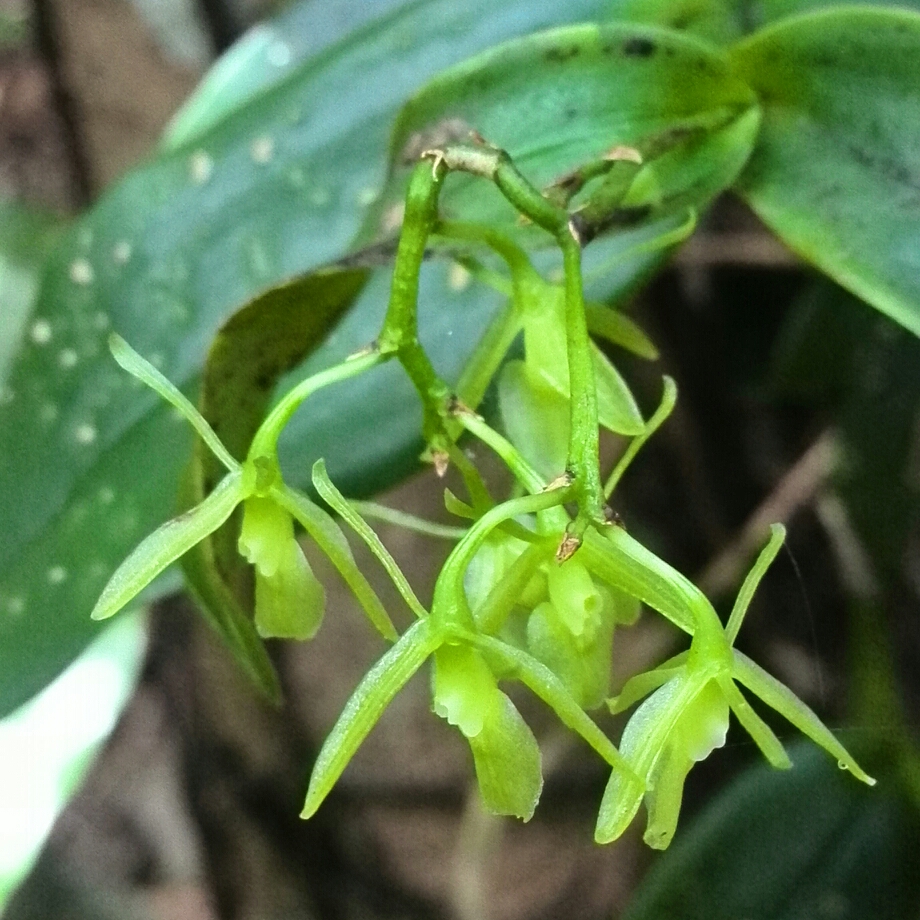
Epidendrum difforme
Differently Formed Epidendrum
Epidendrums have reed-like stems. The inflorescences are long and produce bunches of flowers in shades of orange, red, yellow, lavender, or fuchsia. Most epidendrum blooms have a three-lobed lip at the bottom of the flower that is fused along the centre, and often bloom several times a year. The blooms are sometimes marked with spots or streaks. Most epidendrums are epiphytic. They are native to tropical and sub-tropical areas - they would need to be grown indoors in areas that do not have these conditions. Epidendrum difforme bears clusters of bright green, 1" flowers. It blooms mid-summer. Variable in size depending upon locality and growing conditions.
Contributed by @Jason
-
Partial shade
-
Occasional watering
-
Not Frost hardy
-
Moist and free draining
Common name
Differently Formed Epidendrum
Latin name
Epidendrum difforme
type
Perennial
family
Orchidaceae
ph
5.0 - 8.0 Acid - Neutral
Plant & bloom calendar
-
Best time to plant
-
When the plant will bloom
full grown dimensions
 0.25 M
0.65 M
0.25 M
0.65 M
Epidendrum difforme
Epidendrums have reed-like stems. The inflorescences are long and produce bunches of flowers in shades of orange, red, yellow, lavender, or fuchsia. Most epidendrum blooms have a three-lobed lip at the bottom of the flower that is fused along the centre, and often bloom several times a year. The blooms are sometimes marked with spots or streaks. Most epidendrums are epiphytic. They are native to tropical and sub-tropical areas - they would need to be grown indoors in areas that do not have these conditions. Epidendrum difforme bears clusters of bright green, 1" flowers. It blooms mid-summer. Variable in size depending upon locality and growing conditions.
Flowering
From Early Spring TO Late Winter
Epidendrum produces flowers that last about three months (sometimes even longer) at any time of the year. Once the flowers have faded, cut the flowering stalk back to just above the second node (joint) visible beneath the spent flowers. A new flowering side shoot may develop.
Planting
From Early Spring TO Late Winter
Epidendrums are epiphytic, and so will grow with very little growing medium. They can be planted in just bark, or can be grown in orchid medium. They prefer indirect bright light, and need a temperature of over 50 deg. F. They also require moisture, and should not be allowed to dry out. Nor should they be allowed to stand in water and become waterlogged
Propagating
From Early Spring TO Late Winter
Epidendrums are propagated by tissue culture, which is not easy to do at home, - best left to the experts!








